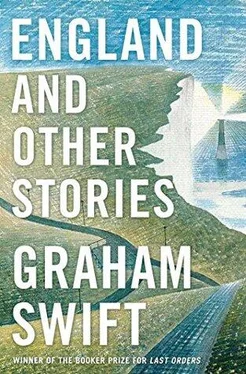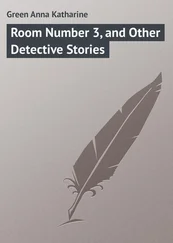But beyond her was the pasta section. He couldn’t go there. He had to go there. They were out of pasta, he’d checked. They weren’t interested in food any more, but they had to eat. They were out of even basics now: pasta, rice. Fuck mince pies.
He’d told Jenny, of course, about the phone call, of course he had. Should he have kept it a secret? It was why they’d eaten the things, that same evening — with a tomato, garlic and basil sauce. A bottle of Sicilian red. They’d been Doug’s ‘choice’. They’d never eat the fucking things again.
He had to go there, yet he couldn’t. And now anyway this losing-her-grip mother was blocking his path. She was standing exactly where—
Everything was like this now: a reason for, a reason against. He was suddenly furious with this useless hopeless mum. Was it anger? What was it exactly? He understood how violence gets done. He pushed his trolley forward, in a no-swerving, no-yielding way, as if to smash into her trolley. Did she catch his eye? Did she see something in it? She was probably thinking: Bastard of a man. She moved in any case, she got out of his damn way, so did the screaming brats. And he was suddenly there, on the spot where he’d spoken to Doug.
His mobile had rung. He’d thought: What now? What had Jenny forgotten to ask him to get? It was the last time he’d heard Doug’s voice. It would have been the middle of the night in Helmand.
He saw them, in their little clear-plastic bags, alongside the lasagne and the tagliatelle. He even knew what the word meant now. Had Doug known? He picked up a packet. He knew that it wasn’t for them to eat. It wasn’t even for Jenny to see, to know. He had to do it. He held the scrunchy packet. He’d put it separately somewhere, he’d hide it. He grabbed a big pack of spaghetti and tossed it into his trolley anyway.
‘Fresh is a scam, Dad. The dried lasts for ever.’
He clasped the fusilli close to his chest. They’d never get eaten. He’d put them somewhere, God knows where. Under the seat in the car.
Christmas wouldn’t happen this year. No presents, no lists. But this was his gift for Doug, or it was Doug’s gift to him. He didn’t know. Everything was this and that. The woman had gone. He’d somehow even cleared the aisle. He felt the pieces of pasta beneath the shiny plastic like the knobbly, guessed-at things inside a Christmas stocking long ago. The little curly things.
THERE WAS A moment, as Dr Grant spoke, when he didn’t see Grant’s face at all. He saw Anne’s face, streaming with salt water. He saw her wet arm held out to him, as if she herself had delivered this news. It made it strangely bearable.
It didn’t otherwise help to know that he was the victim of a rare disease, with some foreigner’s name — as if the rarity, so Grant seemed to be suggesting, was some kind of compensation. He didn’t feel privileged to have been introduced, in this intimate way, to this Dubrowski or Bronowski or whoever he was — as if he too might have held out a hand across Grant’s desk. He saw his wife’s hand. Anne’s hand, Anne’s face.
He saw, but in a different way and more vividly than ever, what he’d never failed to see every day for ten years.
He stopped listening to what Grant was saying. There was only so much you could take in after the announcement of such a basic fact. He was trying to take that in — along with his vision of Anne. He was trying to take in the fact that his life was no longer the indefinite thing of which he’d always been the subject, it was a closed thing, a finite thing, an object.
And he suddenly remembered himself, distinctly, at primary school, aged perhaps ten, holding a cricket ball. It had been a matter of some debate — he remembered this — whether small boys should be allowed to use proper hard cricket balls. But this was the school team, it was serious grown-up stuff, and they were playing St Michael’s. Astonishingly, he remembered even that. He saw himself in the outfield on the off side, picking up a cricket ball struck in his direction. He saw the dry summer grass beneath him, the flattened dandelions. He saw the ball he’d grabbed, its scuffed red surface, felt its solidity.
His life was now like a cricket ball.
But he saw himself, too, fling back his arm and hurl this same ball, with inspired force, not just towards the wicket keeper, but directly towards the stumps. Saw it shatter the stumps long before the running batsman — or batsboy — even with bat outstretched, could gain the crease. Saw the wicket keeper lift his gloved hands in jubilation. Saw everyone lift their hands.
It was a spectacular throw, perhaps thirty yards, and perhaps his only moment of sporting glory. And the strange thing was that he’d known it wouldn’t miss. He hadn’t thought about it in decades, but he saw it now, in Grant’s consulting room, as clearly, as triumphantly as yesterday. He saw the ball, with its dense red weight, briefly clutched in his hand.
After leaving his office he’d taken the bus across the city and by the time he’d entered the now familiar private hospital and sat in the waiting room he’d set out in his mind three possible outcomes for this visit and given them each a percentage. One was that Grant would say the latest tests had revealed nothing of further importance and, though they should keep it under review and meet again in, say, a couple of months, there was really nothing to worry about. Thirty per cent. Second, Grant might say there was now a clear diagnosis, but the problem, though significant, could be treated. Sixty per cent. Third, Grant would say that unfortunately the diagnosis was that he had a rare incurable fatal disease. Ten per cent.
He’d considered these options to be fairly weighted, if anything rather tilted against him, and he’d believed in them like a superstition. Of course he’d hoped for option one, if not exactly for an ‘all clear’. Though he was technically prepared for it, he hadn’t believed in option three, but to have left it out would have been tempting fate.
Yet he’d known from Grant’s face, even before Grant began properly to speak, that option three was actually the one.
There’d come to him the absurdly calming notion that since Grant was a doctor and he was a lawyer a certain professional comportment should be maintained. The roles might be reversed. As a lawyer he’d often had to give clients grave disquieting news or maintain a quasi-clinical detachment while they exhibited signs of distress. He couldn’t complain if it was now the other way round. He should handle himself properly. He should look Grant in the face. He did.
But he saw Anne, he saw her arm. And seeing Anne was really the thing that saved him, not his professional decorum.
This was what kept (these very words came to him) his head above water and made it look to Grant perhaps that he was taking it rather well, he was taking it like a man.
He told himself: I deserve this, I’d even wanted it. This too was the other way round. Ten per cent.
So then.
Then the notion of his life as some small separate finite object, like a cricket ball, had rushed towards him.
He told himself (he actually had the sense of standing outside himself to do so): And anyway it’s hardly unfair. I’m fifty-nine. Many will live to a much riper age. But many, many — though, above all, Anne — have died long before.
And with that supremely balanced thought there’d entered his head — no, it seemed that they themselves had entered Grant’s room — the actual roster of all those he’d known but who’d died before him. They appeared with remarkable clarity and in remarkably organised reverse order, taking him all the way back to the very first of their kind he’d known.
Читать дальше












